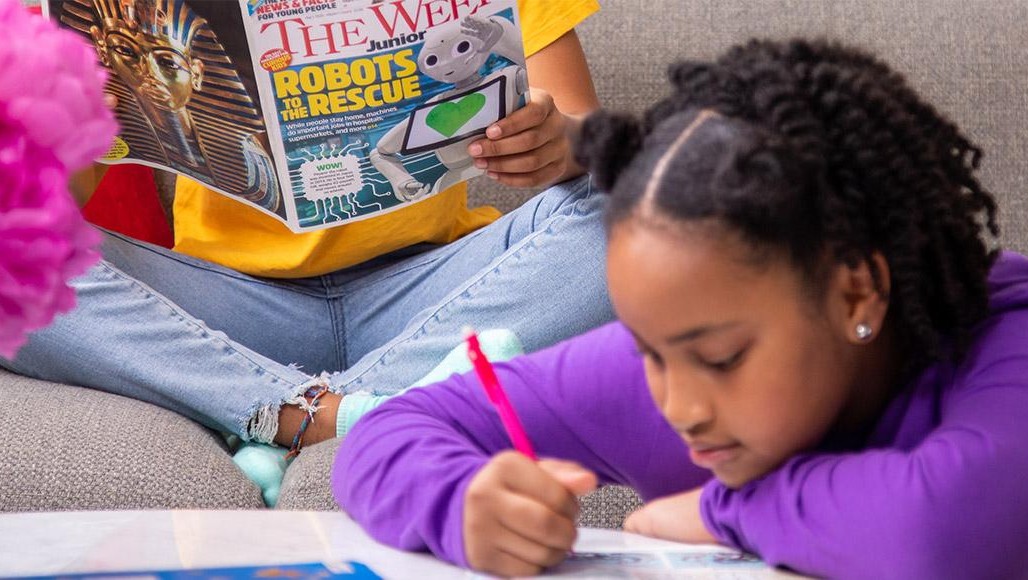How to talk to kids about the news


A free daily email with the biggest news stories of the day – and the best features from TheWeek.com
You are now subscribed
Your newsletter sign-up was successful
As the editor-in-chief of The Week Junior, a weekly newsmagazine for children ages 8 to 14, I’m frequently asked for my advice on talking to kids about what’s happening in the news. One question that often arises is “Are kids actually even interested in the news?” Research conducted by The Week Junior and YouGov has found that they definitely are. A solid 88% of kids in this age range think it’s important to learn about events around the world, and 81% discuss current events with friends and family at least once a week.
The pages of The Week Junior are packed with news from the US and around the world. Sometimes, we have to cover serious stories that are difficult to discuss, from the death of George Floyd to the riot at the U.S. Capitol to the war in Ukraine. Our responsibility to be clear, direct, and honest while also being sensitive to the age and maturity of our readers is something we take very seriously.
With each story, we tailor our reporting and writing to the specific circumstances of the news event. But each time, we follow the same principles, which may help parents, teachers, and other adults have sensitive conversations with children.
• Answer kids’ questions honestly and calmly, without providing more detail than is appropriate for their maturity level.
The Week
Escape your echo chamber. Get the facts behind the news, plus analysis from multiple perspectives.

Sign up for The Week's Free Newsletters
From our morning news briefing to a weekly Good News Newsletter, get the best of The Week delivered directly to your inbox.
From our morning news briefing to a weekly Good News Newsletter, get the best of The Week delivered directly to your inbox.
• Ask children what they know and what they think. Giving them a chance to share their thoughts helps them feel empowered, and letting them know you are there to listen is reassuring. If they are worried about something that is inaccurate, you can correct it.
• Focus on the helpers, whether first responders, aid workers providing assistance, or local heroes stepping up in the moment. In times of crisis, they are always there, doing what they can for others.
• Reinforce your family’s values. You can say you are concerned for people who were harmed or that you disagree with action that was taken. Your family may decide to donate to a nonprofit, and children may want to hold their own fundraiser or take other steps to help in their own way. It’s a powerful feeling for kids to know they can make a difference.
Find out more about talking to kids about the Middle East, Ukraine, school shootings, U.S. elections, and 9/11.
Get The Week Junior delivered every week. Subscribe now!
A free daily email with the biggest news stories of the day – and the best features from TheWeek.com
Andrea Barbalich is editor in chief of The Week Junior, a weekly newsmagazine for children ages 8 to 14 launching this spring from the publisher of The Week.
-
 The Olympic timekeepers keeping the Games on track
The Olympic timekeepers keeping the Games on trackUnder the Radar Swiss watchmaking giant Omega has been at the finish line of every Olympic Games for nearly 100 years
-
 Will increasing tensions with Iran boil over into war?
Will increasing tensions with Iran boil over into war?Today’s Big Question President Donald Trump has recently been threatening the country
-
 Corruption: The spy sheikh and the president
Corruption: The spy sheikh and the presidentFeature Trump is at the center of another scandal
